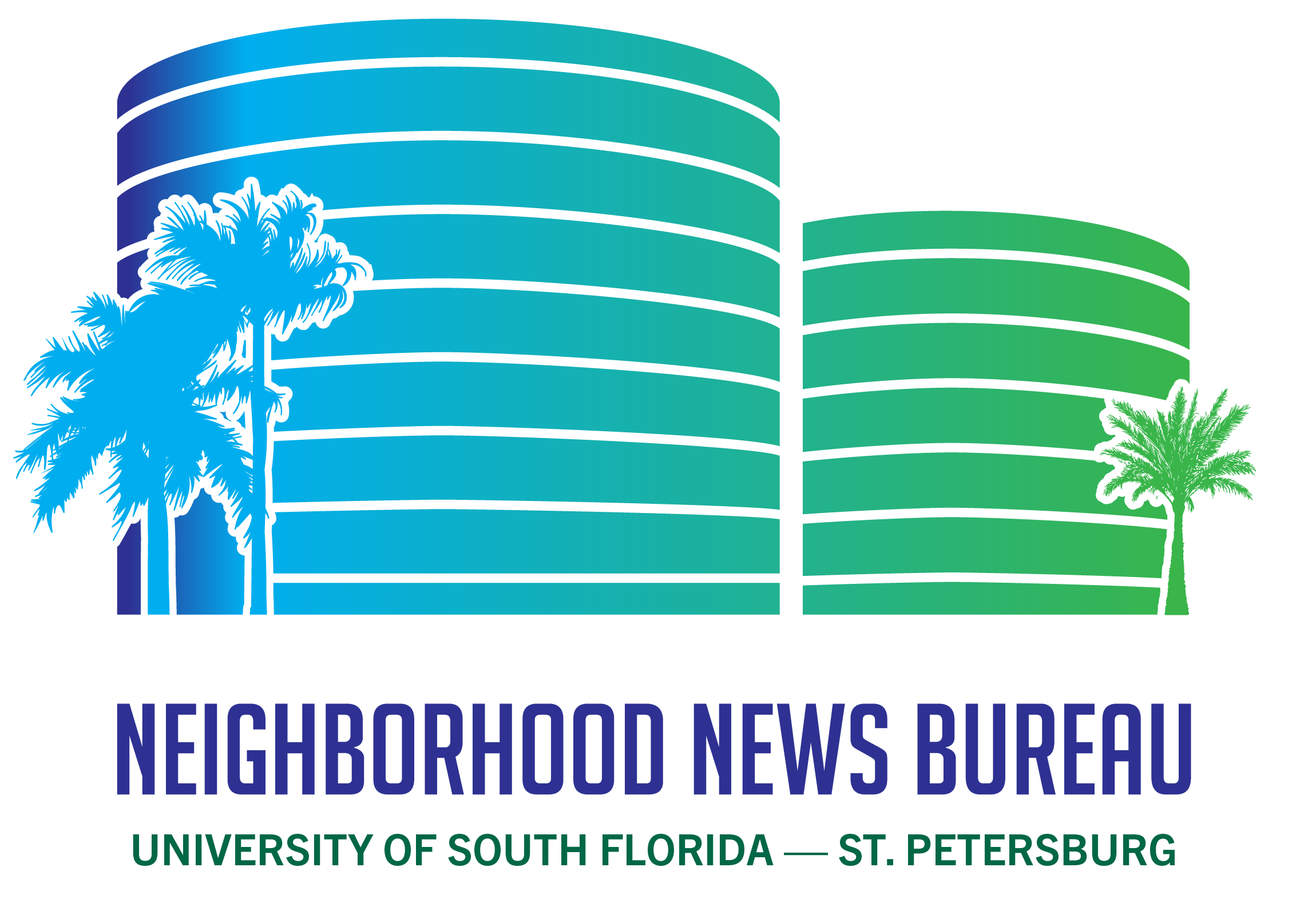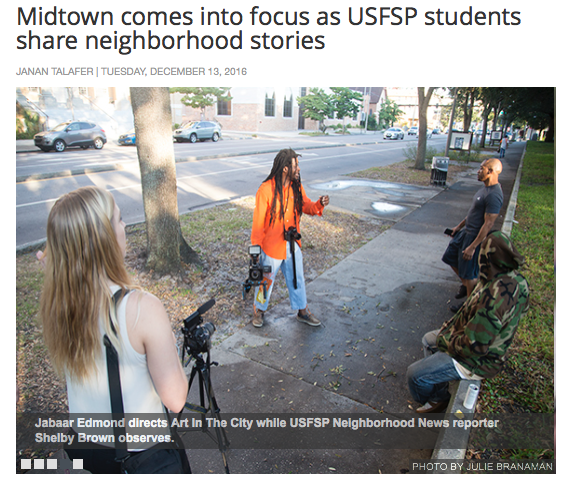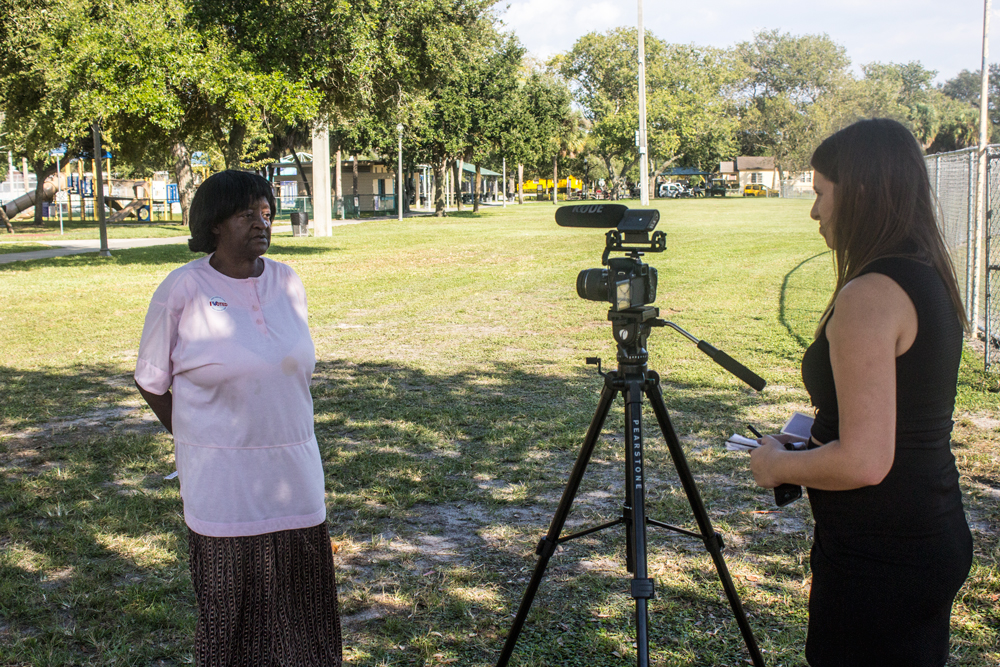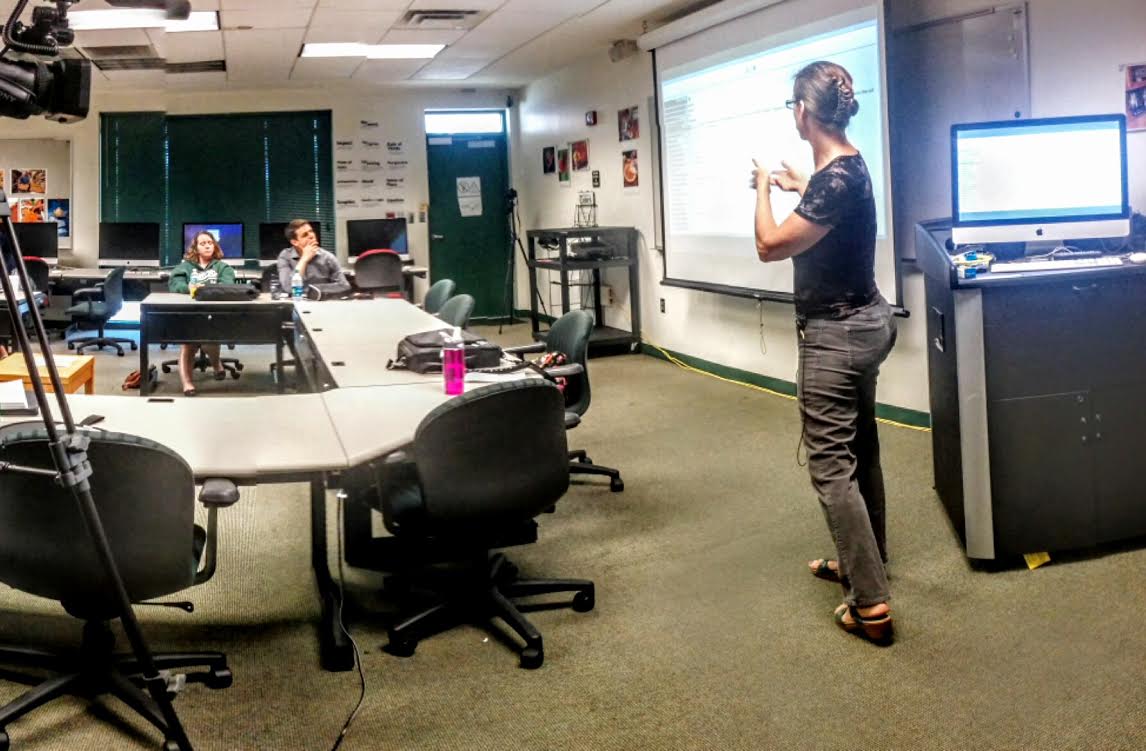NNB was featured on 83 Degrees Media in a story by Janan Talafer and photos by Julie Branaman. Please read the full story here.
Read MoreTag: neighborhood news bureau
Voting tomorrow? See how candidates address Midtown’s concerns
[vc_row][vc_column][/vc_column][/vc_row] BY MOLLY CURLS Neighborhood News Bureau ST. PETERSBURG — As the unprecedented presidential election takes the nation by storm, coverage of local politics is
Read MoreA Community on the Verge of Extinction
Filmed by USFSP student, Tracy Darity, this video shows her concerns regarding “concerning gentrification, the Warehouse Arts District,” and the lack of entertainment options in
Read MoreThe making of an election coverage: NNB reporters tell the stories behind the story
BY SAMANTHA PRITZLAFF AND CHOYA RANDOLPHNNB Reporters ST. PETERSBURG – The Neighborhood News Bureau (NNB) reporters successfully participated in reporting the 2015 Municipal Election in Midtown, the
Read MoreTimes Talk: Building an eye for photojournalism
St. Petersburg, Fla. (Oct. 2, 2015) – Student journalists with the Neighborhood News Bureau got the chance to learn photojournalism techniques and skills from a
Read More



